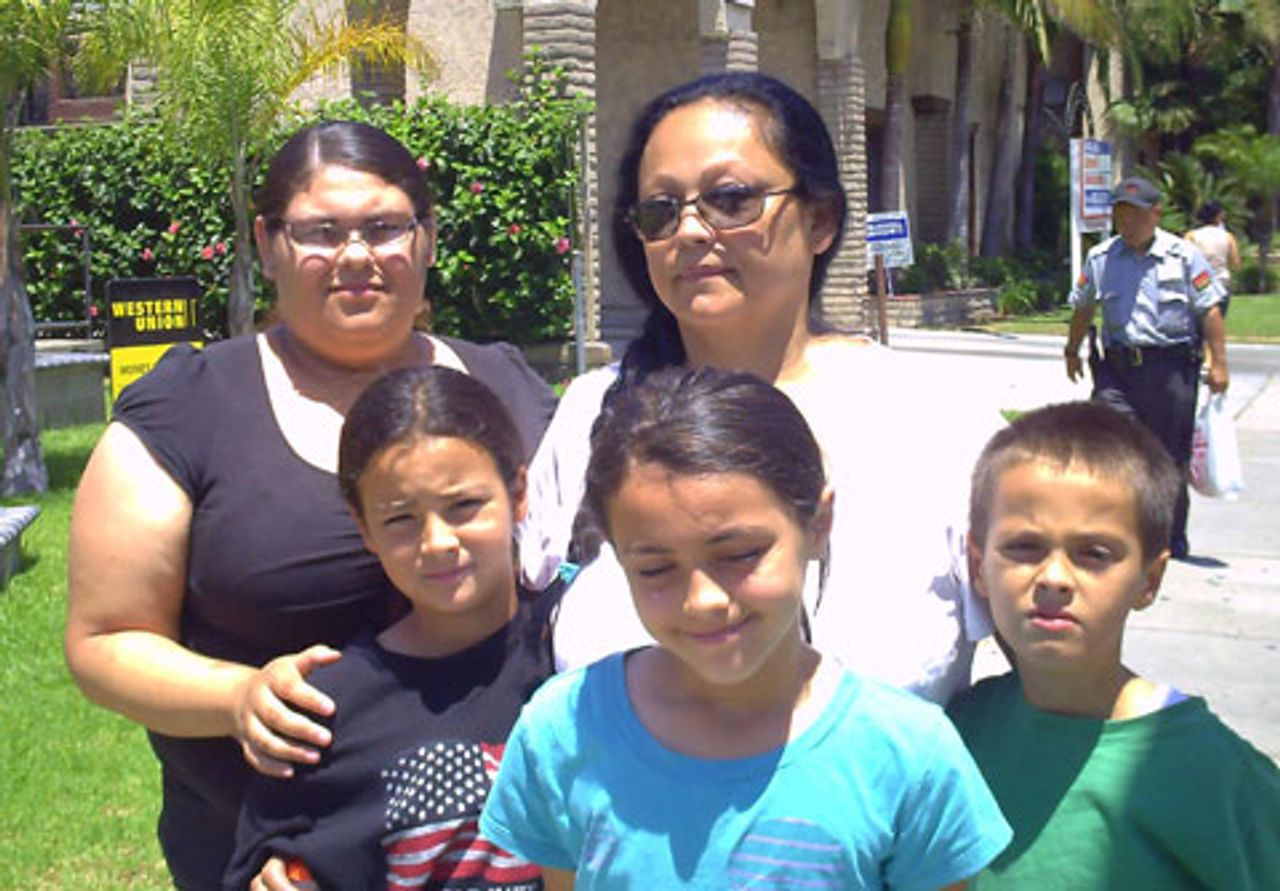California’s ruling class is using the state’s deepening economic crisis to increase its attacks on the working class. Republican governor Arnold Schwarzenegger and the Democratic-majority state legislature is preparing a series of massive spending cuts, and possibly regressive tax increases, that will further devastate the living conditions of the working class in California (see “California governor pushes unprecedented budget cuts”).
At a time when more and more workers, hit hard by job losses and reduced work hours, are in need of assistance, state resources are decreasing. State and county agencies—many of which are now in a twice-monthly furlough days schedule—are making their eligibility rules more “strict.” That is, they are seeking more grounds for giving applicants the bare minimum of help or for squeezing them out of the social services network altogether.
According to its web site, the Los Angeles County Department of Public Social Services (DPSS) is charged with providing “temporary financial assistance and employment services for families and individuals; free and low-cost health care insurance for families with children, pregnant women and aged/blind/disabled adults; food benefits for families and individuals; in-home services for elderly and disabled individuals; and financial assistance and advocacy for federal disability benefits for disabled individuals.” The reality is a different picture.
A pair of WSWS reporters talked to people who had come to the DPSS office in Norwalk seeking assistance, as well as with a DPSS worker. A stark picture emerged of not only the struggles working class families face dealing with the effects of the economic crisis, but also of the travails of getting needed benefits from an increasingly tight-fisted social services system.
Erica, a receptionist clerk at the DPSS, told the WSWS team: “The way things are going it’s going to get really hard. I process applications for social services, and I’ve worked here over a year. There’s been a big increase in the number of people applying and coming into this office. I’ve heard so many stories of people getting laid off. Some of them were even people who owned their own construction companies and they lost their homes.”
Marylu and Jessica are students at Pioneer High School in Whittier. They came with a friend and her baby. The WSWS spoke to all three, with Marylu and Jessica translating for their friend who only knew Spanish. She had come to Social Services because her husband was getting fewer hours at the car wash where he works. He had been earning a miserable $400 every two weeks before, but now even that poverty wage was decreasing.
Marylu said, “The main problem is that there are no jobs. My dad just got laid off at a factory which makes tools that make cement. He had worked there over 15 years, since he had come from Mexico. A lot of the workers were laid off.”
Commenting about the difficulties facing people just trying to buy basic necessities, Marylu stated, “Everything’s more expensive: clothes, groceries, gas. It’s like the Great Depression.”
Jessica complained about deteriorating conditions in the school where they study. “Our classes are full. It used to be 20 students in a class. Now there are over 30 students and many times they have to stand because there are no seats. We have [fewer] materials, like calculators and textbooks.”
The WSWS also spoke with Karla, who has a four-year-old and a two-year-old, and her companion Chris, a temporary warehouse worker whose assignments have dried up. Karla had just been told that she didn’t qualify for welfare benefits because on some weeks she works for over 30 hours. Her plight is reflective of large sections of the working poor, who are penalized by being cut off benefits once they find minimal employment, even if it does not pay enough to make ends meet.
“When I didn’t have a job, I could get social services. Now that I have a job, I just need a little bit of help with food stamps, and they’re denying me. For me it’s much harder because my kids are small. I pay more for day care, and that affects me the most.”
 Sylvia
SylviaSylvia Arizaga, who came with four of her children, is on disability and will soon be having surgery for an enlarged heart, a tumor in her chest, and a tumor in her left adrenaline gland. She came to the DPSS to apply for food stamps, but was sent away after being told she needed to bring additional paperwork.
She explained that Victoria, her oldest daughter—all of 19 years old and planning to start community college in the fall—would be responsible for the family while she is recovering from her cancer surgery. “It will be a lot of responsibility on her,” the mother of seven observed. “One boy is diabetic, and another one has cystic fibrosis.”
“We’re surviving with help from churches, family and friends. It’s really hard right now,” she added.
 Isabel
IsabelThe WSWS spoke with Isabel, who has 4 children and formerly worked admitting patients to an emergency room at a hospital.
“I lost my job in December and it’s been really hard to get back to get a new job. I’ve been applying to all kinds of hospitals, anywhere I can, but none of them are hiring or they don’t have enough positions open.”
She will be receiving food stamps and a small amount of cash aid from DPSS, but noted that she has no medical insurance.
To survive Isabel has had to make significant adjustments to her living situation. “When I was making good money, I was paying $900 a month and had just one roommate. Now it’s four roommates.”
When asked if she saw an end in sight, Isabel replied, “I hope there is. I really don’t know.” She went on to criticize the sales tax hike implemented in April, which disproportionately affects the poor and working class. “The things that they’re raising the taxes on shouldn’t be raised,” she argued, adding, “It’s just more coming out of our pockets.”
